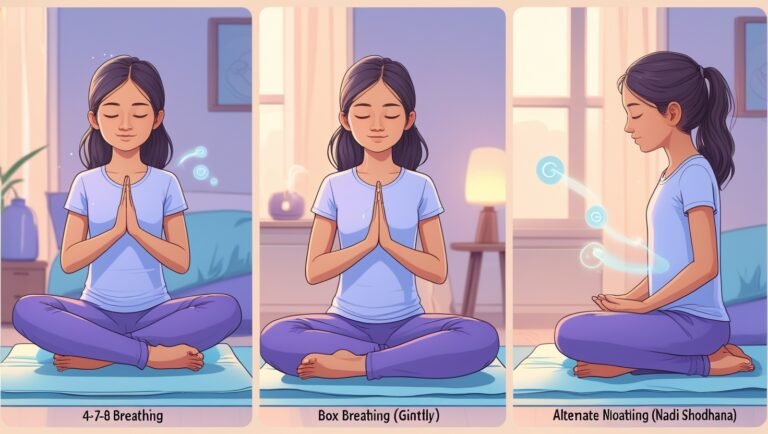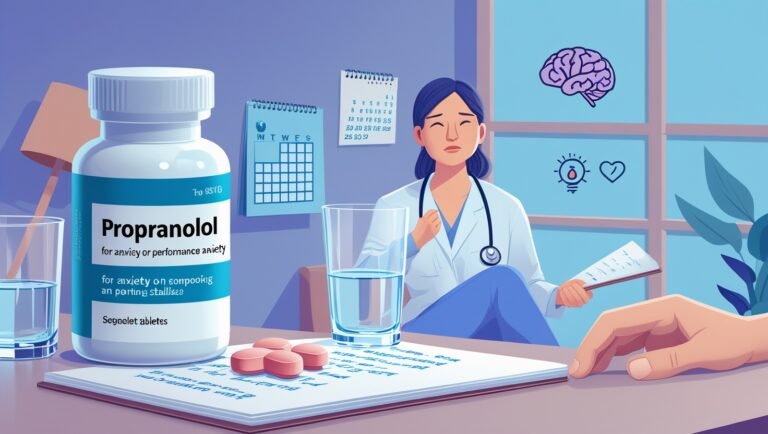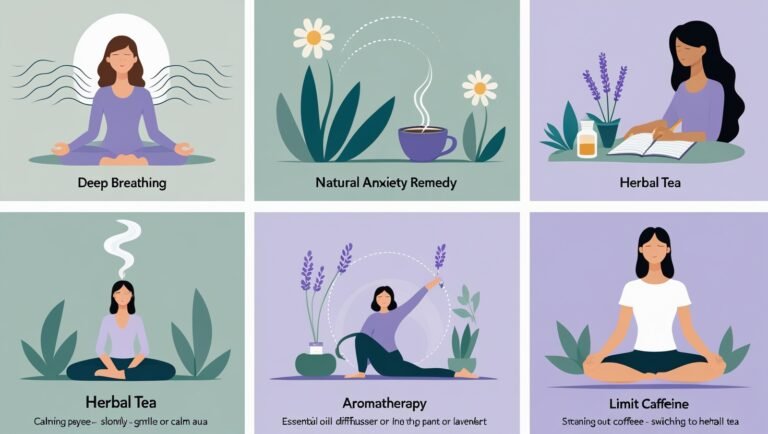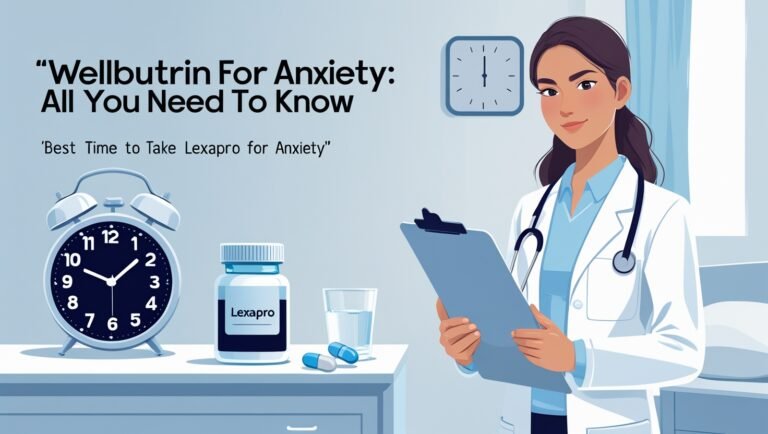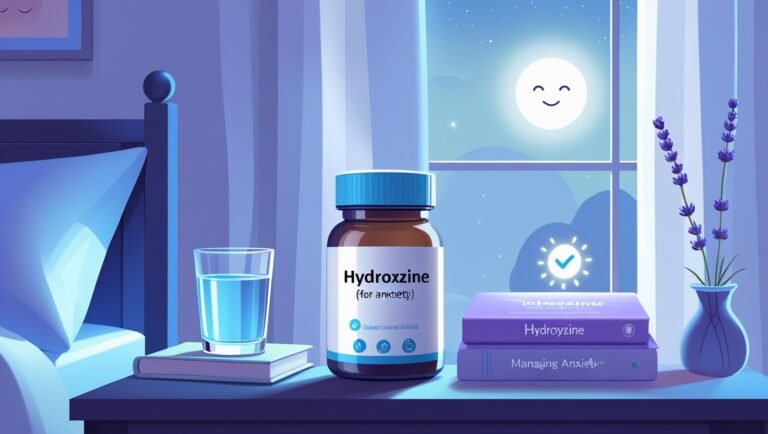Gabapentin for Anxiety: Dosing, Side Effects, and More
Understand how gabapentin works and why you are being prescribed this anxiety medication. Insights from our psychiatrists. “If you’ve been on gabapentin because you have an anxiety disorder or are considering whether you might benefit from it, you may wonder whether it’s working, how it works, and if there are side effects.
Here, we’re going to cover everything you need to know about gabapentin for anxiety.
Key takeaways:
- Gabapentin (Neurontin) is an FDA-approved drug used for the treatment of seizure disorder and nerve pain caused by the shingles. But it is also used off-label for a wide array of other conditions, including anxiety, nerve pain from diabetes and hot flashes.
- Gabapentin can be helpful for anxiety, but it’s not usually a first-line treatment for this condition. Other drugs have been studied more for anxiety, and usually are prescribed to be used first.
- The right dosage of gabapentin for anxiety and other conditions depends on the exact condition being treated, and how well a person responds to the treatment. Dosage can range anywhere from 300mg to 3600 mg per day.
- There are a few different ways to save on gabapentin. For example, GoodRx can help you obtain Horizant at a special cash price of about $170. Manufacturer’s savings cards are also accepted.
What is Gabapentin?
Gabapentin is a prescription medication that the Food and Drug Administration (FDA) approved as a painkiller to aid with the management of nerve pain and seizures. It has other uses too — treating anxiety disorders is among some other applications — though none of them have been specifically approved by the FDA. This is an off-label use for gabapentin, which means there is insufficient data to prove that it’s effective in treating anxiety. Other off-label uses are for treating alcoholism and alcohol withdrawal for alcohol use disorder and hot flashes.
The brand names for gabapentin are Horizant®, Gralise® and Neurontin®.
Because studies are available showing its effectiveness in relieving symptoms of anxiety, gabapentin is not usually the first choice of medication a licensed physician will recommend to relieve symptoms of anxiety.
Most first-line pharmacological treatments include antidepressant drugs as those from the class of SSRIs (Selective Serotonin Reuptake Inhibitors) and SNRIs (Serotonin Norepinephrine Reuptake Inhibitors). If these other treatments don’t help or aren’t appropriate, a doctor might prescribe gabapentin.
Gabapentin for anxiety
While gabapentin can and is used to treat anxiety, it’s not an officially approved anxiety medication. That’s because gabapentin is not approved for treating anxiety. But studies have shown that it may help some people. In one trial, women with a history of breast cancer who had anxiety were randomised to receive 300 mg or 900 mg of gabapentin daily. Both doses of gabapentin reduced anxiety symptoms from placebo (a pill that contained no medication) after 4 and 8 weeks. A tiny study also showed gabapentin to be beneficial in social anxiety disorder.
On the whole, there are no large, well-designed trials comparing gabapentin to first-line anxiety medications like selective serotonin reuptake inhibitors (SSRIs). In the absence of this kind of research, most prescribers have not suggested gabapentin should be favored over other more proven anxiety medications.
How does Gabapentin work?
Gabapentin appears to mimic a neurotransmitter in the brain known as GABA. GABA inhibits brain activity and deficiencies in GABA’s functioning have been associated with several psychological disorders, including panic disorder, and depression.
It is worth mentioning that the drug gabapentin is not a synthetic or lab-made version of GABA. It works by mimicking GABA. It slows or stops messages between nerve cells, in effect decreasing pain from nerve injury and also preventing seizures.
Though GABA is implicated in anxiety, anxiety is complicated, and researchers are still trying to understand how and whether gabapentin might work to relieve symptoms of moderate to severe anxiety. Based on a few compelling studies, some researchers and doctors believe that it may be beneficial for treating social anxiety disorder and severe panic disorder (average—we medians do it all the time—with any luck this is as bad as it gets) in people who do not respond to other treatments.
How long does it take for gabapentin to work for anxiety?
Gabapentin can be soothing in just hours or less. But if you do have anxiety, it may take a couple weeks or longer to notice full anxiety-relief effects.
Gabapentin for anxiety dosage
In research settings, gabapentin dosages for anxiety typically fall between 300 mg and 3,600 mg a day. This is no different than the dosing of gabapentin for other indications. Higher doses are usually separated into three times daily.
There may need to be 900 mg a day in order to effectively do this, according to some research. Yet we don’t have a lot of overall research to tell us what the best dosage of gabapentin for anxiety is.
Is gabapentin safe to take at bedtime?
Yes. In reality, if you’re prescribed gabapentin as a once-a-day dose, you’re probably asked to take it at evening time. This is because gabapentin can cause drowsiness and may also assist in sleep.
What could be side effects of the drug gabapentin?
As with all drugs, gabapentin can have its own side effects, some of which are more common and others that are very rare. Gabapentin side effects that tend to be mild and common include:
- Tiredness
- Dizziness
- Tremors
- Nystagmus (a rapid, uncontrollable movement of the eyes)
- Fluid buildup
- Weight gain
- Less common but more dangerous side effects of gabapentin are:
- Depression
- Changes in mood in children and youth including feeling very aggressive
- Memory problems
- Severe skin rash
- Anaphylaxis
- Suicidal thoughts and behaviors
They can also have serious withdrawal effects, including seizures, if cut off all at once.
Depressed breathing and the risk of overdose when mixed with opioids, benzodiazepines or alcohol
Taking Gabapentin for Anxiety
If you take gabapentin for anxiety — or any medication for anxiety — you must take it as prescribed. You will be told the dose which suits you, according to your condition and state of health. You will probably start with a low dose and then your provider will work with you to increase your dose according to your response and symptoms. For example, if you’re not responding to treatment, your doctor may recommend a higher dose of a medication (or a different one).
If you’re living with anxiety, you’re probably eager to address your symptoms, especially if you’ve experimented with different treatment options. Remember that it can take time to find the right medication, and as hard as it is, it’s important to be patient and see the process through. Failing to use your medicine correctly could result in your side effects and safety getting worse.
Your prescribing physician will hopefully walk you through the nuanced directions for how you should consume your medication, the potential side effects and so on, and should manage your expectations regarding how long it will take for your medication to begin mitigating your anxiety symptomology.
How long does it take for gabapentin to help with anxiety?
It can also take some time to find the right dose of gabapentin for you, but once you’ve found the best dose for you you may start to notice improvements in about 3 weeks or sooner. Everyone is different in how they respond to medication and it may take a shorter or longer amount of time for you to notice a difference in your level of anxiety. Try to be patient with the process and always take your medications as recommended by your physician.
Gabapentin alternatives
You have a choice between gabapentin for anxiety and other drugs. Your doctor should be able to recommend another medication if this doesn’t work for you or if you have a history of this type of reaction. Here are some other medications that are often used to treat anxiety:
Antidepressants, for example, SSRIs (selective serotonin reuptake inhibitors) and SNRIs (serotonin- norepinephrine reuptake inhibitors). These work by making more of certain neurotransmitters (chemical messengers) that help control your mood available in your brain. Equalizing these chemicals can decrease anxiety. It might take a few weeks for these medications to have their full effect.
Anti-anxiety drugs, such as benzodiazepines and Buspar (buspirone). They do so by increasing the brain’s access to GABA. GABA is a neurotransmitter that can make you feel calm. Anxiolytic medications work faster than gabapentin and are sometimes used to address symptoms of short-term or acute anxiety disorders such as panic disorder.
Beta blockers are a class of medications normally used to lower blood pressure or treat heart-related conditions that can also help to treat performance anxiety such as public speaking. They function by blocking adrenaline — a neurotransmitter responsible for many of the physical symptoms of anxiety, such as increased heart rate, shaking, trembling and fast breathing. Beta-blockers are used ‘off-label’ only in the treatment of anxiety. Which is to say, the FDA hasn’t approved either of them as an anxiety treatment, but there are some indications that they may be of benefit.
could suggest a medication not on this list in addition to these other drugs, depending on how severe your anxiety is and whether you have anxiety in combination with other mental health disorders. Your doctor may also suggest other treatments, such as cognitive behavioral therapy, in addition to medication.
What can you not take with gabapentin?
As with all drugs, gabapentin also has its side-effects and drug interaction considerations. Importantly, gabapentin can combine dangerously with opioids, such as oxycodone / acetaminophen (Percocet), and with benzodiazepines, such as alprazolam (Xanax). It can interact with alcohol as well. Taking gabapentin with any of these substances may cause you to have severe drowsiness, slowed breathing, or an overdose. Some OTC antihistamines such as diphenhydramine (Benadryl) can also produce significant sedation when combined with gabapentin.
Magnesium-and aluminum-containing antacids, such as Rolaids (calcium carbonate/magnesium hydroxide), Maalox (magnesium hydroxide/aluminum hydroxide/simethicone) and magnesium oxide, are OTC medicines that can lower the amount of gabapentin in your body leading to gabapentin being less effective.
Provide your healthcare team with a list of all medications you are currently taking, including over-the-counter medications, before you begin taking gabapentin, or any time you start or stop a new medication while taking gabapentin. This will aid them in screening for potential interactions.
Other possible uses for gabapentin
A lot of gabapentin is used in off-label ways. Later we’ll explain some cases where gabapentin might help.
Diabetic neuropathy
Gabapentin is a first-line approach to treating diabetic neuropathy (nerve pain from diabetes). There isn’t as much evidence supporting the use of gabapentin for other types of nerve pain, however (with the exception of diabetic neuropathy and postherpetic neuralgia).
Pain after surgery
Gabapentin before and after surgery might also help curb pain, and cut the need for opioid medicines. In multiple studies, gabapentin reduced pain after procedures such as heart surgery, hysterectomy and thoracic (chest) surgery.
Gabapentin doses for surgical pain were between 300 mg and 1200 mg pre- and/or postoperatively.
Detoxification and Alcohol Withdrawal Syndrome.
Alcohol withdrawal occurs when you or someone you love has developed a physical dependence on alcohol and quit drinking suddenly. Withdrawal can be unpleasant and include symptoms such as tremors, mood swings, and difficulty sleeping. Other severe side effects are also being observed, including fevers, seizures, and hallucinations.
Benzodiazepine drugs such as chlordiazepoxide (Librium) and lorazepam (Ativan) are the preferred drugs for treating or preventing these symptoms. Gabapentin could be considered as an alternative (at doses of at least 1,800 mg) in individuals with normal kidney function, but no first-choice. Benzodiazepines are effective at preventing serious complications of withdrawal such as seizures and delirium tremens.
Not only may gabapentin ameliorate the alcohol-withdrawal symptoms, it may also increase the odds of cessation of alcohol use.
Cannabis use and withdrawal
Gabapentin may also help bring down the use of cannabis in people who want to quit. As a result of misconceptions about the addictive potential of cannabis, approximately 14 million people, according to one survey, display symptoms of cannabis use disorder. “Just like crawling off alcohol, if you stop cannabis it can feel not so good, you don’t sleep well, you’re moody, you’re sweaty.
Hot flashes in women
Gabapentin could be effective for women who suffer from hot flashes because of menopause, breast cancer or medication, studies suggest. The dose of gabapentin for hot flashes is 900 mg to 2,400 mg daily, taken in divided doses.
Restless leg syndrome
A long-acting form of the drug (Horizant) is used to treat restless legs syndrome (RLS). This is a movement disorder that causes an almost irresistible urge to move the legs; it affects as many as 10 percent of working-age adults in the United States.
Immediate-release (IR) gabapentin isn’t FDA approved for RLS, but studies have found it helpful for this purpose. Two is that both IR gabapentin and Horizant are first-line drugs for RLS. If IR gabapentin is prescribed, the usual doses are 1,200 mg to 1,800 mg daily.
Itchy skin
Itchy skin is a common, irritating symptom that can have many causes. Topical medications or antihistamines can be helpful for some itchy skin when the cause of irritation has been removed. But gabapentin can also be useful in treating some unusual forms of itching caused by nerve damage (as can another widely prescribed nonopioid, amitriptyline). Dosing depends, but a maximum of 3600 mg per day has been used (split into three doses).
How to save on gabapentin
There are options to save on gabapentin, a generic- and brand-name drug. GoodRx can assist you in managing the negotiation among GoodRx coupons and a manufacturer copay savings card for savings on your prescription.
Save with GoodRx: 30 capsules of generic gabapentin could cost you as little as $10.73 with a free GoodRx coupon. And anyone who has a valid prescription can use GoodRx to purchase a 30-day supply of Horizant for an exclusive cash price of around $170.
Save with a copay savings card: If you have commercial insurance, you could pay as little as $0 for Horizant or $20 for Gralise using a copay savings card from the manufacturer.
The bottom line
Gabapentin (Neurontin) is a medication that was approved by the F.D.A. in 1993 to control epileptic seizures. But it’s widely used off-label for other conditions, as well. Examples are anxiety, diabetic neuropathy, and restless leg syndrome.
Some studies place gabapentin as effective for anxiety. But it is not generally a first-choice drug for this purpose. Some other treatments, such as selective serotonin reuptake inhibitors (SSRIs), are usually attempted first. That’s because we have more research on how well they work. If you think you might want to try gabapentin for anxiety, discuss it with your prescriber so you can make an informed choice.
FAQs
When should I get help for anxiety?
Anxious thoughts can be a normal part of life, but if unwanted thoughts are interfering with your daily life, it is a sign you need professional help. Psychiatry can help. You can determine if Talkiatry is a good fit for you by visiting a free, 10-minute personal assessment.
Is anxiety medication safe?
Anxiety medications are FDA-approved and safe to use. Your psychiatrist (or prescribing provider) should assist you in exploring options for medications and should help to answer any questions you may have regarding what the benefits of each medicine are as well as what the potential side effects are.
What organs does gabapentin affect?
You may wonder if you can take gabapentin safely if you have a history of liver or kidney damage. These organs don’t seem to be negatively impacted by gabapentin. But if you have kidney function that’s lower than normal, you may need a gabapentin dosage adjustment. This is because gabapentin is excreted by the kidneys. It could accumulate in your blood and raise your risk of side effects if your kidneys are not working the way they should.
Can gabapentin cause weight gain?
It’s possible. Gabapentin induces fluid retention in the arms and legs ( peripheral edema), which can result in a significant weight gain. Not only that, but weight gain can happen from gabapentin even in the absence of peripheral edema, which is not the norm.
Yet, if you take your prescribed dose, you can do a lot to lower your risk of gaining weight from gabapentin, so be sure to heed your prescriber’s recommendations regarding dosing carefully.
View All References
Bates, R. E., et al. (2020). Retrospective analysis of gabapentin for alcohol withdrawal in the hospital setting: The Mayo Clinic experience. Mayo Clinic Proceedings: Innovations, Quality & Outcomes.
Bonnet, U., et al. (2017). The cannabis withdrawal syndrome: Current insights. Substance Abuse and Rehabilitation.
Bockbrader, H. N., et al. (2010). A comparison of the pharmacokinetics and pharmacodynamics of pregabalin and gabapentin. Clinical Pharmacokinetics.
Chang, C. Y., et al. (2014). Gabapentin in acute postoperative pain management. BioMed Research International.
Garcia-Borreguero, D., et al. (2002). Treatment of restless legs syndrome with gabapentin: A double-blind, cross-over study. Neurology.
Hong, J. S. W., et al. (2021). Gabapentin and pregabalin in bipolar disorder, anxiety states, and insomnia: Systematic review, meta-analysis, and rationale. Molecular Psychiatry.
Lavigne, J. E., et al. (2012). A randomized, controlled, double-blinded clinical trial of gabapentin 300mg versus 900mg versus placebo for anxiety symptoms in breast cancer survivors. Breast Cancer Research and Treatment.
Levine, A. R., et al. (2019). High-dose gabapentin for the treatment of severe alcohol withdrawal syndrome: a retrospective cohort analysis. Pharmacotherapy.
Liu, G. J., et al. (2017). Efficacy and tolerability of gabapentin in adults with sleep disturbance in medical illness: A systematic review and meta-analysis. Frontiers in Neurology.
Loprinzi, C. L., et al. (2009). Newer antidepressants and gabapentin for hot flashes: An individual patient pooled analysis. Journal of Clinical Oncology.
Manson, J. E., et al. (2015). Algorithm and mobile app for menopausal symptom management and hormonal/non-hormonal therapy decision making: A clinical decision-support tool from The North American Menopause Society. Menopause.
Markota, M., et al. (2017). Treatment of generalized anxiety disorder with gabapentin. Case Reports in Psychiatry.
Mason, B. J., et al. (2012). A proof-of-concept randomized controlled study of gabapentin: Effects on cannabis use, withdrawal and executive function deficits in cannabis-dependent adults. Neuropsychopharmacology.
Matsuda, K. M., et al. (2016). Gabapentin and pregabalin for the treatment of chronic pruritus. Journal of the American Academy of Dermatology.
Mattson, C. L., et al. (2022). Notes from the gield: Trends in gabapentin detection and involvement in drug overdose deaths — 23 states and the District of Columbia, 2019–2020. Morbidity and Mortality Weekly Report.
National Institute of Neurological Disorders and Stroke. (2024). Restless legs syndrome. National Institutes of Health.
NorthStar Rx. (2024). Gabapentin – gabapentin capsule [package insert].
Sihoe, A. D. L., et al. (2006). The use of gabapentin for post-operative and post-traumatic pain in thoracic surgery patients. European Journal of Cardiothoracic Surgery.
Silber, M. H., et al. (2021). The management of restless legs syndrome: An updated algorithm. Mayo Clinic Proceedings.
Sreekantaswamy, S. A., et al. (2021). Gabapentinoids for pruritus in older adults: A narrative review. Dermatology and Therapy.
Ucak, A., et. al. (2011). The effects of gabapentin on acute and chronic postoperative pain after coronary artery bypass graft surgery. Journal of Cardiothoracic and Vascular Anesthesiology.
Urbano, M. R., et al. (2009). Gabapentin and tiagabine for social anxiety: A randomized, double-blind, crossover study of 8 adults. The Primary Care Companion to the Journal of Clinical Psychiatry.
Wiffen, P. J., et al. (2017). Gabapentin for chronic neuropathic pain in adults. Cochrane.
Yesudian, P. D., et al. (2005). Efficacy of gabapentin in the management of pruritus of unknown origin. Archives of Dermatology.

